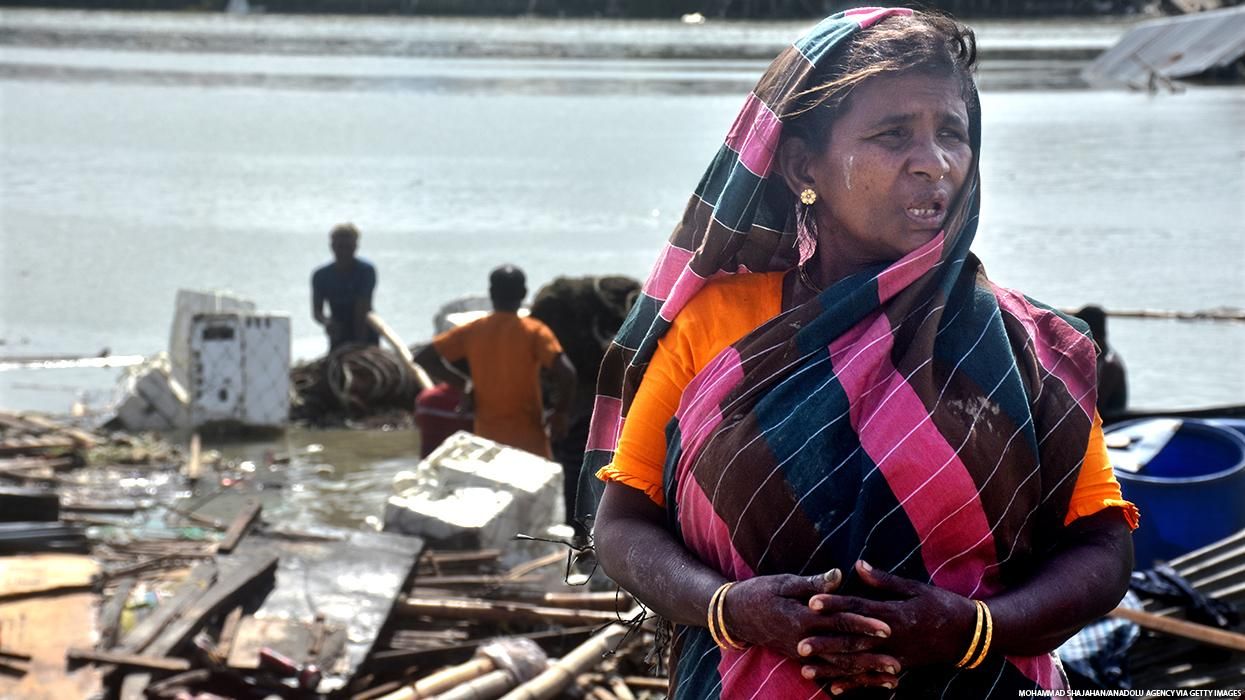Data shows that the world's wealthiest nations are directly responsible for the economic damages caused by climate change. Now experts are debating whether or not that means they should be forced to pay.
Research from Carbon Brief establishes that greenhouse gas emissions and extreme weather are linked. Recently, climate change has exacerbated environmental conditions across the globe, including the intensification of major storms.
According to Debt Justice, low income countries spend five times more on adjusting to the effects of climate change than wealthy nations, which are typically the biggest polluters. By 2030, vulnerable nations will likely face $290 to $580 billion in "residual climate damages" – damages that can no longer be prevented by initiatives to tackle climate change.
A July study from Dartmouth College concluded that the United States is the biggest polluter in human history, with an estimated $1.9 trillion in climate damages caused over the last 25 years. China, Russia, India and Brazil were the next four largest emitters, with an estimated total of $4.1 trillion in damages, around 11% of yearly global GDP.
Justin Mankin, assistant professor of geography at Dartmouth and co-author of the study, toldBBC Newsthat because nations finally have definitive proof of the damages they cause, they should be held accountable financially.
"We show that there is a scientific basis for liability claims," he said. "The science shows that if one country can have detectable damages, one country's foregoing emissions can have detectable benefits. That's really essential. ... It overturns this narrative of 'what can one country do?'"
Under the UN Framework Convention on Climate Change (UNFCCC), the UN body dedicated to addressing climate change, a loss and damage finance facility could be established to require polluting nations to pay out. Though wealthy nations resist, climate-vulnerable countries have continuously advocated for such measures.
With these provisions, fossil fuel companies could also be held accountable for their damages. A 2017 CDP study revealed that merely 100 companies are responsible for 71 percent of greenhouse gas emissions globally, with Europe's five biggest oil providers responsible for $13 trillion in damages. A tax on fossil fuel extraction could raise billions to curtail them.
"No amount of money can compensate for some climate loss and damage: lost human lives, cultural heritage, animal and plant species, and ancestral lands are among the most profound impacts," Kathy Mulvey, campaign director at the Union of Concerned Scientists toldBBC News. "The sovereignty of a country that has lost its physical territory can't be brought back with money."
But Olivia Hanks, head of climate justice in Britain's religious group of Quakers, believes that beyond economic reparations, financial compensation could challenge social power relations between nations.
"It would help us think differently about responsibility. It's about calling out the moral wrong, also imagining the world and those power relations differently," she said. "Capitalism teaches us a competitive mindset where as a country we shouldn't give money to another country and thus risk our strategic advantage. But it is possible to think in more cooperative terms and realize that if vulnerable nations are thriving it makes rich countries more likely to thrive."



















































